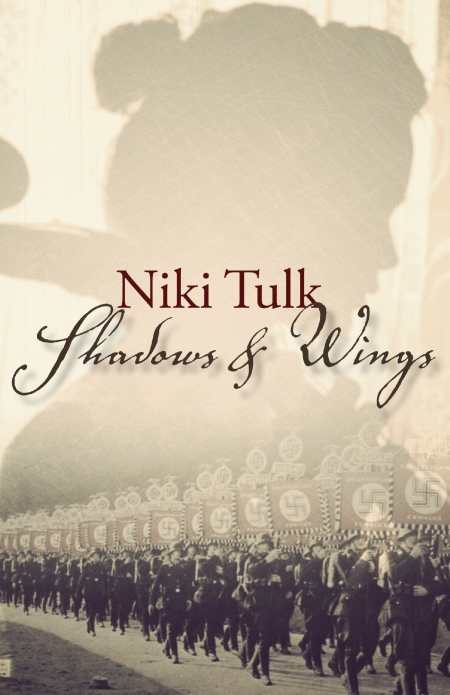Shadows & Wings
Intense and haunting, debut work dissects multiple layers of human interaction as it explores questions about Nazi past.
Exquisitely written, exceptionally engaging, and deeply thoughtful, Niki Tulk’s Shadows and Wings spans the decades and the distance from pre-World War II Germany to modern-day Australia. The stories of German Tomas Müller and his granddaughter, Lara, intertwine in this debut novel.
A tale of war and peace, destruction and rebuilding, guilt and forgiveness, Shadows and Wings embodies a statement—and warning: “Don’t ask so many questions.” Don’t ask, that is, unless you really want to know the answers—if, indeed, there are any answers.
At seven, Lara is inadvertently allowed to watch part of a television program about the Holocaust. The narrator sounds exactly like her beloved Opa, the name she calls her grandfather. It is not, but the subliminal connection has been made.
Tulk transitions with seemingly effortless ease between accounts of Tomas’ childhood in Germany and Lara’s in Australia. A classical cellist herself, Tulk fashions Tomas as a cellist, creating a character whose musical aspirations are thwarted by the coming of war to his native country. Drafted into the German army, he serves the Nazi cause, and the guilt stays with him for the rest of his life. Secrecy reigns, as well, and it is his secrets that Lara is tasked to discover.
The moon, the ocean, birds, and the landscape serve as metaphors and constants throughout Tulk’s book. Virtually everything she mentions has deeper meaning. After the war, in a devastated Germany, Tomas looks out over his destroyed homeland and decides to leave for Australia. In his new country, he is a gardener, known for creating abundance and beauty. During his ocean voyage, he throws his military uniform and papers overboard; Lara, too, disposes of “evidence” in the same way. “I am trying to throw my past into the ocean,” thinks Tomas, “But it floats too easily.” Lara, as well, will never forget.
Shadows and Wings haunts in its intensity. Tulk captures the family dynamic convincingly and poignantly and displays a clear talent for dissecting the multiple layers of human interaction. She shows that she understands both the whimsy of childhood and the anxiety of the child in an adult environment. Her dialogue, whether between children, adult and child, or adults, is realistic and wholly believable. Tomas’ and Lara’s family secrets are not unique to them, yet they are as personal in Tulk’s story as they are universal in their nuance and effect.
This book is appealing on many different levels. Beautifully written and evocatively told, the story offers readers much to ponder. Those interested in WWII and its aftermath will find the emotional impact telling, and those simply seeking a “good read” will discover a gripping portrayal of relatable characters and a solid, powerful plot line. Readers may actually weep with Lara at the end, as she ultimately comes to understand, “There are some things, no matter how deeply I search for them, I will never know.”
Reviewed by
Cheryl Hibbard
Disclosure: This article is not an endorsement, but a review. The publisher of this book provided free copies of the book and paid a small fee to have their book reviewed by a professional reviewer. Foreword Reviews and Clarion Reviews make no guarantee that the publisher will receive a positive review. Foreword Magazine, Inc. is disclosing this in accordance with the Federal Trade Commission’s 16 CFR, Part 255.

